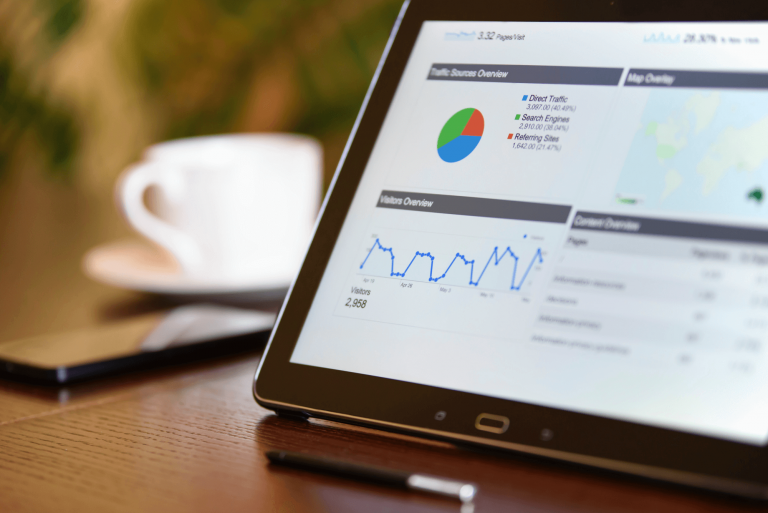Data analyst: from pure analyst to generalist
The role of the data analyst is changing. Traditionally, the data analyst would translate (usually internal) data into usable information for the company. The exponential growth of the volume of available data has put pressure on the role. We demand more from generalist data analysts these days than the simple collection of information. They have to think about the business issues and help to come up with solutions, based on internal and external data. The data analyst also has to be able to present the information to all stakeholders. The required skills are shifting from hard skills (analysis) to the soft side: presenting and convincing people of changes, storytelling.
A revolution within Business Intelligence
There’s a revolution happening in the Business Intelligence field. On the one hand, tools now allow end-users to access data themselves. On the other hand, the volume of data is growing exponentially, as is its complexity: the so-called Big Data revolution. Innovative data analysts find themselves caught in the middle of all this.
Data analysis that works for you
Data analysis is no longer just the process of turning data into information correctly and predictably. Thanks to the rapid developments in the field of Business Intelligence software, the end-user can turn data into information themselves more easily than ever. We call this self-service BI.
There are many kinds of data sources, and they tend to be more complex than the sources of even a few years ago. This calls for a new set of solutions and expertise. Where data used to be stored primarily in a structured way, unstructured storage (such as in a data lake) is happening more often now. Data is then mined from these large bodies of unstructured data. These developments can be described under the umbrella term Big Data.
All this demands new competencies of the traditional data analyst. They become more like an advisor or director of data, overseeing the entire process. Other end-users will then work with data independently, supervised by the analyst. The data analyst’s motto should be: don’t work with data but make data work for the organization.
Related roles
✓ Interim BI manager
✓ Data scientist
✓ BI consultant
✓ Business Analyst
Trends in data analysis
Self-service BI and Big Data are trends described above. But these aren’t the only trends to look out for. The following trends directly influence the development of the data analyst function:
- New sources and tools: the rise of new sources like web and social data has also made new tools available. These tools map social media networks and perform web analyses. New techniques like machine learning are taking off in a big way, and provide more insight into data than before.
- Programming is back: until recently, programming wasn’t supposed to come into play in Business Analytics. But now more and more tools are available that require some level of programming.
- Smart algorithms determine success: data is everywhere and relatively accessible. Algorithms are a must for the quick interpretation of data, and a good business intelligence architecture is essential.
- Explosion of new tools: the amount of available solutions for processing and interpreting data is growing quickly. Tools like R, Python, and Octave are taking off. These tools are often used in a stand-alone environment.
- The rise of the Internet of Things (IoT): new sensors that produce large amounts of data are cropping up in rapid succession. The trick is mining all these sources for usable data.
- From long reports to storytelling: a data analyst’s time is shifting from data preparation and analysis to presentation. The division should now be 40% data preparation, 30% data analysis, and 30% presentation.
The above is only part of the story. There are lots of developments in the traditional data analysis domain, too. Vendors continuously add new functionality to their existing BI solutions. Also, the tools for data governance and manipulation are getting better all the time.
Which practical skills should a data analyst possess?
The skills of a generalist data analyst are shifting from hard skills (data preparation and analysis) to soft skills. For example, presenting, communicating, and storytelling. The most important skills nowadays are:
- Analytical and conceptual thinking, to be able to analyze and prepare data, by using well-designed performance management.
- Handling details. It’s essential for everything to be correct in the data preparation and analysis phase.
- Being accurate when it comes to data processing and interpretation.
- Clear communication.
- Using storytelling to answer complex problems using simple solutions.
These softer factors aren’t replacing the hard skills, but they’re being added to the profile. The data analyst has to keep developing on both fronts.
The changing world of the data analyst
The role and tasks of a data analyst are changing. What’s important to pay attention to?
- How do you measure the success of a data analyst?
- Which tasks will belong to this new profile?
- Which skills can you expect a data analyst to have?
- How and where can you find the right data analyst for your challenges?
- How can you develop yourself into a generalist data analyst?
Do you want to hire a data analyst?
Data analysts can be hired anywhere. But Passionned Group only works with experienced data analysts with a deep, comprehensive knowledge of the business and good communication skills. Our unique formula enables us to introduce you to the right data analyst quickly. When you contact us with a request, we’ll get in touch with you within 24 hours. Then we’ll make a clear profile of the data analyst. We’ll also discuss the business challenges they should solve in your organization.
After the intake, we’ll introduce two candidates that fit your profile. Upon choosing one of our candidates, we can usually complete the process within 48 hours. The right data analyst can then quickly start working in your organization.
The benefits of Passionned Group
All our data analysts are highly experienced in Business Intelligence, information-driven working, and Big Data. Aside from that, they possess strong communication skills. They strive to professionalize the organization further. They also have an extensive toolset at their disposal. These tools can also be used by your company.
Everything is designed to help you and your organization advance in Business Intelligence. We’d love to help you professionalize further. We have an extensive BI knowledge base that contains a wealth of information on BI and data analysis.
How do you become a better data analyst?
Developments in the BI field are happening quickly. They demand new competencies. Passionned Academy helps (future) data analysts develop these competencies.We also offer training courses as in-company workshops. If you want personalized advice, contact us.
Are you a data analyst looking to broaden your horizons?
Passionned Group is regularly looking for experienced (interim) data analysts to help its clients. Are you such a person, and are you looking for a new challenge? We’d love to meet you. Leave us your contact details and we’ll contact you as soon as possible.
Any questions?
Do you have any questions about hiring a data analyst, or do you want to learn more, but don’t know where to start? Or do you have a more generic question about Business Analytics? Let us know. We’d love to help you.
About Passionned Group
 Passionned Group is a leading firm in designing and implementing Business Analytics. Our senior Data Scientists and consultants assist both large and small companies in becoming smarter enterprises. Every two years we organize the Dutch BI & Data Science Award.
Passionned Group is a leading firm in designing and implementing Business Analytics. Our senior Data Scientists and consultants assist both large and small companies in becoming smarter enterprises. Every two years we organize the Dutch BI & Data Science Award.




